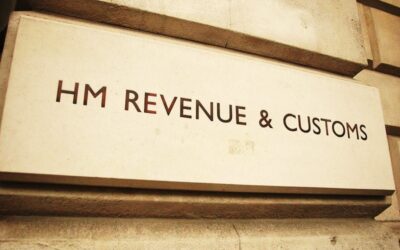The Finance Bill 2021-22 was published earlier in November, legislating for tax changes announced at the Autumn Budget. This briefing focuses on two aspects of the bill, amendments to the Diverted Profits Tax and measures relating to the promotion of tax avoidance schemes.
The Diverted Profits Tax
The Diverted Profits Tax (DPT) was introduced in 2015 to target contrived and artificial arrangements implemented by multi-national companies to divert profits out of the United Kingdom. It is a tax on tax avoidance designed to reduce the incentives on companies to implement avoidance schemes.
It should be noted that the UK government did not need a DPT to recover tax lost to artificial arrangements designed to divert profits out of the UK. Under long-standing tax principles, HMRC is able to disregard the tax effect of contrived avoidance schemes and impose taxation and penalties on companies using such schemes.1See TaxWatch: Is Tax Avoidance Legal? http://13.40.187.124/is_tax_avoidance_legal/
However, the DPT was designed to act as an additional disincentive on companies using artificial avoidance schemes due to the higher rate of tax charged.
At the time it was introduced, the government estimated that the tax would bring in up to £400m a year. However, the latest forecasts from the Office for Budget Responsibility (OBR) show that the tax brought in £100m last year, but that this will be reversed this year, and that there will be no income generated from the tax over the following five years.2Figures available from: https://obr.uk/download/october-2021-economic-and-fiscal-outlook-supplementary-fiscal-tables-receipts-and-other/
The Treasury response to the news that the DPT is no longer forecast to raise any revenue, as reported in the Observer, is to suggest that the tax had been successful in provoking multinationals to change their behaviour.3Jon Ungoed-Thomas and Toby Helm, Osborne’s ‘Google tax’ on overseas profits now raises zero revenue, Treasury reveals, The Observer, 31 October 2021 … Continue reading
However, according to the HMRC annual accounts, published this November, HMRC are currently carrying out 100 investigations into multinational companies under the DPT, with a total tax under consideration of £3.8bn.4HM Revenue and Customs, Annual Report and Accounts 2020 to 2021, p.52
The low out-turn figures presented by the OBR may therefore be a function of HMRC settling disputes with multinationals without applying DPT.
In 2019, HMRC introduced a new “profit diversion compliance facility”. This was “aimed at arrangements targeted by the DPT”, and allowed multinationals to come forward and pay the taxes they should have paid, and any penalties, without suffering DPT.5HM Revenue and Customs, Guidance: Profit Diversion Compliance Facility, 10 January 2019, … Continue reading
The resolution facility is open to companies even if they are currently under investigation by HMRC in relation to DPT, as such it represents an easy route for companies to avoid the application of DPT if they believe HMRC will apply the tax following investigation. The availability of the disclosure facility to companies currently under investigation calls into question how voluntary that disclosure really is.
The technical amendments in this year’s Finance Bill appear to facilitate the settlement of disputes without DPT being charged, by extending the time period when a company can amend previous tax returns in order to get out of the DPT charge.
If OBR figures are predicated on the expectation that most, if not all of the 100 companies currently under investigation will settle under the favourable terms, this raises serious concerns about tax compliance.
As is clear from the details published by HMRC at the time the disclosure facility was made available, a number of DPT investigations relate to fraudulent conduct.
In the Profit Diversion Compliance Facility Guidance, HMRC stated that it had found that companies had adopted cross border pricing arrangements based on “an incorrect fact pattern”. In some cases this arose out of arrangements not implemented “as originally intended or declared to HMRC”, leading to a divergence between “the fact pattern” presented to HMRC and “what is happening on the ground”. This included transfer pricing arrangements based on “misleading statements”. This description clearly covers tax fraud committed by multinational companies against the Treasury.
The government therefore needs to be careful that the operation of disclosure facilities and the DPT does not lead to multinationals being allowed to escape any accountability for tax fraud by retrospectively amending their tax returns and making an after the event disclosure. The DPT should not become an amnesty for tax fraud.
Promoters of tax avoidance schemes
Clauses of the bill relating targeting the promoters of tax avoidance scheme provide HMRC with additional powers to wind up companies involved in the facilitation of tax avoidance, freeze the assets of people subject to proceedings under DOTAS legislation, and to publish information relating to tax avoidance schemes.
It is vital that HMRC is able to take swift action against the promoters of tax avoidance schemes in order to protect the public. However, it is clear that many promoters are engaged in criminal activity. As the government accepted in its recent response to its call for evidence on tackling disguised remuneration tax avoidance: “The Government recognises that the design of arrangements that are sold as avoidance schemes may in fact enable fraud”.6HM Revenue and Customs, Call for evidence: tackling disguised remuneration tax avoidance summary of responses, 23 March 2021, para 2.34 … Continue reading HMRC needs to use the powers it has to enforce the law in this area.
At second reading the government was asked what it was doing to prosecute people involved in the promotion of loan schemes. The answer from the Financial Secretary to the Treasury was as follows:
“An issue I have raised directly with HMRC is how we can further prosecute and bring these people to justice. Unfortunately, I understand that many of them are located offshore, but we will be doing everything we can to ensure that those who are responsible for promoting this are brought to justice.”
It is important for HMRC to specific about what is meant by the term “offshore”. If offenses are committed by people resident, or that have escaped to, the Crown Dependencies, then there is no impediment to enforcing the criminal law of the UK.
For example, it is well known that many disguised remuneration schemes are run from the Isle of Man. The government published a series of anonymised disguised remuneration case studies which are available on gov.uk.7Anonymised Disguised Remuneration Case Studies, available from: … Continue reading This detailed four case studies, of which three were identified as being schemes involving the Isle of Man. The remaining scheme did not identify any jurisdiction.
Section 13 of the Indictable Offences Act 1848 allows warrants issued in England and Wales for Indictable Offences to be executed in the Isle of Man (IoM) and the Channel Islands (i.e. Guernsey, Jersey, Alderney and Sark). Section 4 of the same act allows the enforcement of a warrant issued in Scotland to be enforced by the local IoM police.
The crime of Cheating the Revenue is an indictable offence. As such, if HMRC have reasonable grounds to suspect that the promoters of any Isle of Man or Channel Islands based schemes have committed the offence of Cheating (which constitutes any dishonest conduct that results in prejudice to the revenue), then all that is required is to issue a warrant for their arrest.
Section 5 of the Isle of Man Act 1979 enables someone in the IoM to be arrested for offences committed in the UK. While the act refers to specific “common duties” offences, such as customs, excise, and UK VAT, section 1 (2) allows for the treasury add “any duty or tax which is under the care and management of the Commissioners of Customs and Excise”.
These provisions have in the recent past allowed HMRC and other agencies to take action to arrest suspects located in the Isle of Man. In 2015, Operation Braid saw the confiscation of £500,000 from an Isle of Man businessman suspected of money laundering and a £21m VAT fraud in the UK. This action was part of a wider investigation into VAT fraud and money laundering, which saw seven arrests, 13 properties raided, and £1m in cash seized, in a joint HMRC-National Crime Agency investigation involving police forces across the UK, as well on the Isle of Man.
We have written to the Financial Secretary to the Treasury Lucy Frazer QC MP setting out the position.
Although there is no legal impediment to the enforcement of the criminal law in relation to tax on the promoters of tax avoidance schemes, there is a concern that HMRC are not adequately resourced to take on the job.
According to HMRC’s latest annual accounts, the number of criminal investigations declined steeply as a result of the pandemic, with HMRC concluding 437 criminal investigations in 2020-21, a 49% reduction on 2019-20 when the department concluded 864 investigations.
This reduction in activity is mirrored in the data from the Crown Prosecution Service (CPS) on how many offences they had charged relating to specific revenue offences related to tax fraud.
The figures TaxWatch received following an FOI to the CPS are reproduced below. They show a clear decline in prosecutions for almost all forms of tax fraud over the last five years, with the number of prosecutions being reduced substantially in 2021 as a result of the impact of the pandemic.
| 2016-2017 | 2017-2018 | 2018-2019 | 2019-2020 | 2020-2021 | |
| Common Law (Cheating the Public Revenue) | 144 | 113 | 127 | 79 | 19 |
| Criminal Law Act 1977 { 1(1) } (Conspiracy to Cheat the Public Revenue) | 9 | 13 | 49 | 27 | 1 |
| Taxes Management Act 1970 { 106A } | 173 | 127 | 62 | 69 | 21 |
| Value Added Tax Act 1994 { 72(1) } | 228 | 184 | 161 | 129 | 48 |
| Value Added Tax Act 1994 { 72(3)(a) } | 100 | 65 | 69 | 33 | 18 |
| Value Added Tax Act 1994 { 72(3)(b) } | 17 | 1 | 0 | 1 | 0 |
| Value Added Tax Act 1994 { 72(8) } | 1 | 3 | 2 | 1 | 0 |
| Value Added Tax Act 1994 { 72(11) of and paragraph 4(2) of Schedule 11 } | 119 | 196 | 96 | 137 | 23 |
As we move beyond the pandemic, HMRC will have to deal with the backlog of cases built up during the last 18 months, together with the substantial amount of furlough fraud. In order to adequately take on tax crime, HMRC will need significant extra resources to ensure that those responsible for cheating the revenue are brought to justice.
Read the full briefing in PDF format here.
References
| ↑1 | See TaxWatch: Is Tax Avoidance Legal? http://13.40.187.124/is_tax_avoidance_legal/ |
|---|---|
| ↑2 | Figures available from: https://obr.uk/download/october-2021-economic-and-fiscal-outlook-supplementary-fiscal-tables-receipts-and-other/ |
| ↑3 | Jon Ungoed-Thomas and Toby Helm, Osborne’s ‘Google tax’ on overseas profits now raises zero revenue, Treasury reveals, The Observer, 31 October 2021 https://www.theguardian.com/politics/2021/oct/31/osbornes-google-tax-on-overseas-profits-now-raises-zero-revenue-treasury-reveals |
| ↑4 | HM Revenue and Customs, Annual Report and Accounts 2020 to 2021, p.52 |
| ↑5 | HM Revenue and Customs, Guidance: Profit Diversion Compliance Facility, 10 January 2019, https://www.gov.uk/government/publications/hmrc-profit-diversion-compliance-facility/profit-diversion-compliance-facility |
| ↑6 | HM Revenue and Customs, Call for evidence: tackling disguised remuneration tax avoidance summary of responses, 23 March 2021, para 2.34 https://assets.publishing.service.gov.uk/government/uploads/system/uploads/attachment_data/file/972080/Call_for_evidence_tackling_disguised_remuneration_tax_avoidance_-_summary_of_responses.pdf |
| ↑7 | Anonymised Disguised Remuneration Case Studies, available from: https://assets.publishing.service.gov.uk/government/uploads/system/uploads/attachment_data/file/784201/Appendix_2___Anonymised_Disguised_Remuneration_Case_Studies.pdf |



